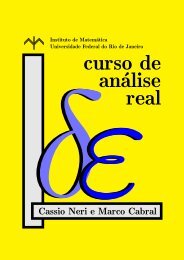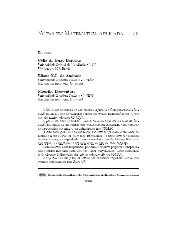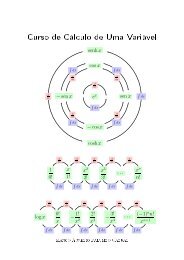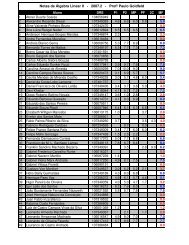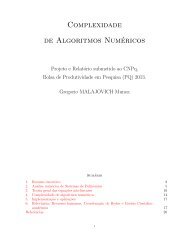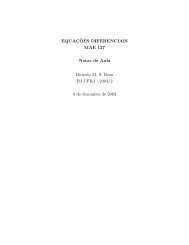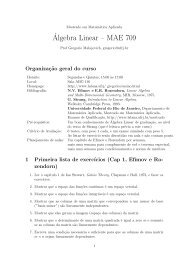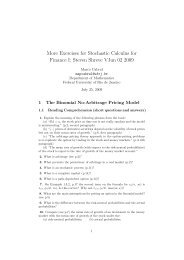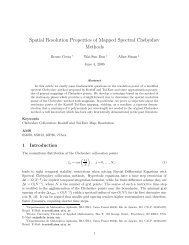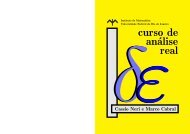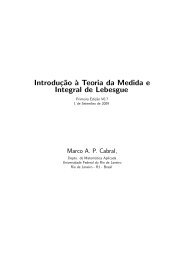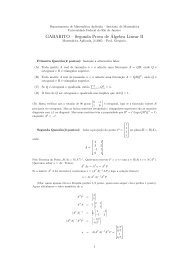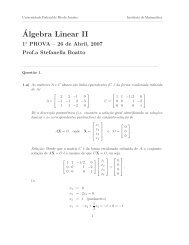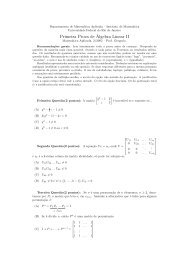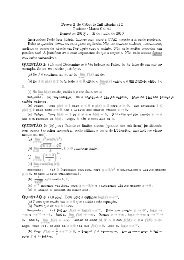Nonlinear Equations - UFRJ
Nonlinear Equations - UFRJ
Nonlinear Equations - UFRJ
You also want an ePaper? Increase the reach of your titles
YUMPU automatically turns print PDFs into web optimized ePapers that Google loves.
[SEC. 7.2: THE γ-THEOREMS 91<br />
When u 0 < 5−√ 17<br />
4<br />
, (7.3) implies that the sequence u i is decreasing,<br />
and by induction<br />
u i = γ|t i |.<br />
Moreover,<br />
( ) 2 ( ) 2 ( ) 2<br />
u i+1 ui u 0<br />
=<br />
u 0 u 0 ψ(u i ) ≤ ui u 0<br />
u 0 ψ(u 0 ) < ui<br />
.<br />
u 0<br />
By induction,<br />
( ) 2<br />
u i −1<br />
i u0<br />
≤<br />
.<br />
u 0 ψ(u 0 )<br />
This also implies that lim t i = 0.<br />
When furthermore u 0 ≤ (3 − √ 7)/2, u 0 /ψ(u 0 ) ≤ 1/2 by (7.4)<br />
hence u i /u 0 ≤ 2 −2i +1 . For the converse, if u 0 > (3 − √ 7)/2, then<br />
|t 1 |<br />
|t 0 | = u 0<br />
ψ(u 0 ) > 1 2 .<br />
Before proceeding to the proof of Theorem 7.5, a remark is in<br />
order.<br />
Both Newton iteration and γ are invariant with respect to translation<br />
and to linear changes of coordinates: let g(x) = Af(x − ζ),<br />
where A is a continuous and invertible linear operator from F to E.<br />
Then<br />
N(g, x + ζ) = N(f, x) + ζ and γ(g, x + ζ) = γ(f, x).<br />
Also, distances in E are invariant under translation.<br />
Proof of Theorem 7.5. Assume without loss of generality that ζ = 0<br />
and Df(ζ) = I. Set γ = γ(f, x), u 0 = ‖x 0 ‖γ, and let h γ and the<br />
sequence (u i ) be as in Lemma 7.10.<br />
We will bound<br />
‖N(f, x)‖ = ∥ ∥x − Df(x) −1 f(x) ∥ ∥ ≤ ‖Df(x) −1 ‖‖f(x) − Df(x)x‖.<br />
(7.6)



